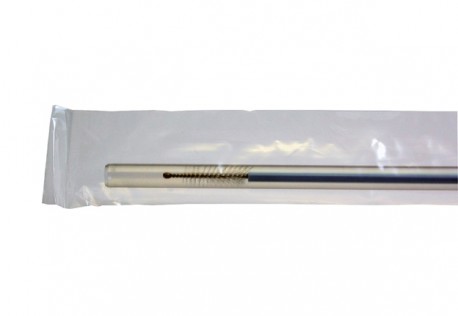
Cytologic examination of cows is a long-established method to evaluate inflammations of the reproductive tract, e.g. endometritis which may be the cause of fertility problems. Endometritis in dairy cows is defined as inflammation limited to the endometrium occurring at least 21 days after calving. It is not associated with systemic illness. Although, endometritis has been investigated extensively during the last decade it is one of the most controversial topics discussed among practitioners due to the lack of a diagnostic gold standard. The Cytology Brush technique and the uterine lavage are often used to assess endometritis. Both techniques can be used to collect diagnostic samples from the uterus in order to determine the presence and number of polymorphonuclear neutrophils (PNMs) which are known to be the predominant inflammatory cell type found in the intrauterine fluid, and have been associated with reproductive performance. High numbers of PNMs correlate with reduced pregnancy rates: Gilbert R.O. et al. (Theriogenology 2005)provide evidence for the influence of endometritis on fertility. Significantly more cows without endometritis were confirmed to be pregnant at day 300 post partum versus cows diagnosed with endometritis (89% vs. 63%, pFurthermore, it has also been demonstrated that pregnancy rates after the first service were higher in healthy cows than in cows with endometritis, which required more breedings to achieve pregnancies (Gilbert R.O. et al,Theriogenology 2005).
Two additional studies have compared the two most popular diagnostic techniques, namely using the Cytology Brush and intrauterine lavage to determine the method of choice for accurate detection of endometritis (Barlund C.S. et al Theriogenology 2008, Kasimanickam R. et al., Canadian Veterinary Journal 2005).
Both of these latter studies came to the conclusion that the Cytology Brush is:
In order to increase fertility by detecting and immediately treating endometrial inflammations, the Cytology Brush should become a routine device for veterinarians specialized in bovine reproductive medicine.